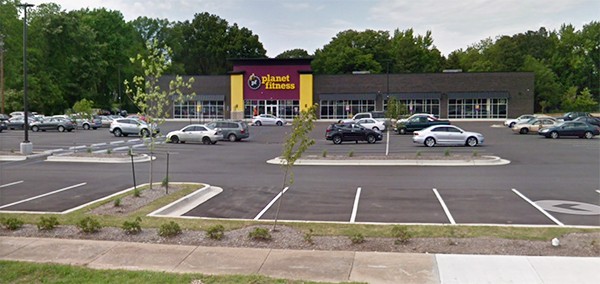One morning, my girlfriend woke up to see our view was gone. It happened in stages. At first we noticed scraps of metal growing where Midtown Nursery used to host Christmas trees a couple of years back. Before the nursery came, it used to be Neil’s Bar. She told me stories of her wild nights there. I held her close and sighed as they put up the new sign: Madison@McLean. An unoriginal name for a bland building.
Now my view is the inside of strangers’ windows. I’m a reluctant voyeur. I keep my blinds shut now; I have nothing to see anyway.
When I found out that The P&H Cafe was closing, that was the final straw for me. I knew the city was remaking my home for some mediocre profit. And who will see those profits?
The P&H is a historic landmark for Memphis. Craig Brewer filmed his first movie there. He even named the movie after the place: The Poor & Hungry. Countless comedians made the bar their watering hole. Musicians played some of their first shows here. The ceiling glorified the best of Memphis. It was a home away from home for them all.
Home. That word is getting so much harder to say now as I recognize less and less about Midtown.
There is one area of town where these efforts of gentrification have worked for the better: Crosstown Concourse.
From the wreckage of a Sears distribution center has come an art gallery, school, and, even better, a medical clinic. It has given space to new businesses as well, such as Global Cafe and French Truck Coffee. Outside of it, Black Lodge Video and Hi Tone, two locally grown Memphis-based businesses and centers of culture, have been saved as well. They returned with vigor.
But, still, the increase in rent around that area, as well as inside the Concourse itself, prices out local people and caters to people outside of Memphis. I know we want to attract newcomers to the city, but not at the expense of the locals who made it what it is.
As much as I appreciate and advocate for this former blight turning into a new neighborhood and cultural touchstone, I fear that, with the rise of gentrification in Midtown and other neighborhoods, we are turning our former home into a new Frankenstein creation that resembles places such as Portland. Or worse — Nashville!
My connections to Midtown run deep, but it’s not the only neighborhood being eyed by developers. There’s Summer Avenue, rebranded as Memphis’ international district and home to old businesses, antiques stores, and taco shops and diners and dives that give the neighborhood its flavor. The Pinch District, where the Tower Project might bring jobs and attractions, Uptown, the Edge — I welcome investment in these neighborhoods, but it’s vital we find a balance between the old and the new.
But I’m a Midtowner, so that’s where the heart of this piece lies. We have had a lovely community of folks striving to make this part of town unique and quintessentially Memphian in flavor.
Midtown has a variety of neighborhoods that define our modern Memphis culture. From the streets surrounding Idlewild Presbyterian, where one of the first integrated congregations took place, to the shops in Cooper-Young, where OUTMemphis has hosted programs benefiting the Southern queer community and helped house so many disenfranchised.
Midtown is where I grew up. Where my dad grew up. Where his own father grew up.
And of all the stories we share, there is one common thread: a feeling of home and security, of community. That essence is disappearing fast with the introduction of these big-box apartment buildings, replacing the very character of Memphis that we have all come to love. Historic monuments stand now in fear of who’s next. If we can just hold onto that history though, we may save our neigborhoods’ distinct vitality — and keep the spirit of Memphis alive.
William Smythe is a Memphian and published poet.

